It is a pleasure to welcome Rob Johnson to my blog today! He is the author of two entertaining thrillers and a time travel adventure. He has also released a travelogue about his life as an English expat living in Greece on an olive farm.
Read on to discover why Rob does his best writing in the bath, how his high school English teacher planted the writing seed, life in Greece, and his books.
Please tell me a little bit about yourself, your books and writing career.
Hello, and many thanks to Jennifer for inviting me to say a few words about my work on your blog. I’m originally from England but have spent the last fourteen years living on a 5-acre smallholding in Greece with my wife Penny, six (at the last count) rescue dogs, two cats and four hundred olive trees.
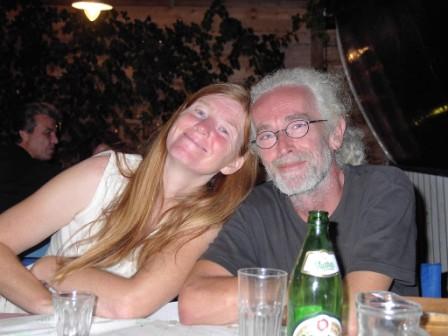
I’ve always loved writing and making up stories ever since I was old enough to do joined-up lettering, although my writing “career” didn’t really begin until about thirty years ago. (Yes, I really am that old!) At the time, I’d been working for several years as an administrator and publicist for touring theatre companies when I got my first opportunity to write professionally (i.e. paid) for the stage. Four of my plays were professionally produced and toured throughout the UK, but when public funding for non-commercial theatre virtually dried up overnight I was forced into the world of “proper jobs” as my father liked to call them.
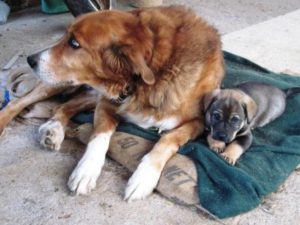
There then followed a period of several years when I did no creative writing at all, but soon after moving to Greece, Penny realised there was something major missing in my life and coerced me into sitting down and writing something – anything as long as it made me less grumpy. Having only written plays before, I decided to try my hand at a novel, and eventually my comedy thriller Lifting the Lid was born. The second novel in the series, Heads You Lose, appeared a year later, and after that, I switched genres to write Quest for the Holey Snail, which is a comedy time travel adventure that’s been variously described as “utterly bonkers” and “wonderfully mad”.
Switching genres yet again, my most recent book, A Kilo of String, is loosely based on my podcast series of the same name and is a non-fiction(ish) account of my and Penny’s often bizarre experiences of living in Greece for almost a decade and a half.
Who would you like to sit next to on a long flight (up to two people, living or dead)?
A long flight? Are you serious? I hate flying even more than I hate olive harvesting, the difference being that the latter is only marginally less likely to kill you. Yes, I know all the statistics about how flying is supposed to be the safest form of transport and that you’re more likely to be eaten by a pterodactyl than die in a plane crash. It’s just that I hate the idea of being locked inside a metal tube for hours without any means of escape. Four hours between Greece and the UK is four hours too long as far as I’m concerned, so I’d choose someone who’d be fascinating enough to take my mind off the whole terrible ordeal and make the time pass in a flash.
I can think of several possibilities, of course, but I think I’d have to plump for John Lennon. I’ve always been a huge fan of his music and his philosophy, and Imagine has to be one of the greatest songs of all time. In fact, half the flight would probably be taken up with chatting about that one song alone and why it’s okay to be a dreamer, so I’d also want to nip to the nearest bar when (if) we landed to carry on chatting and hear a lot more from the great man.
But what if John Lennon had missed the flight or was otherwise unavailable? Well, my second choice would have to be a qualified doctor with the necessary wherewithal to put me into a deep sleep for the entire duration of the flight.
Where do you do your best writing?
In the bath. Not writing as such, but I definitely seem to have my best ideas or come up with a solution to some plotting issue or other while having a long soak. Well, it worked for Archimedes, didn’t it? It also seems to have worked for Dalton Trumbo. For those who don’t already know, he was a Hollywood screenwriter who was blacklisted during the McCarthy witch-hunts during the 1940s and 50s and wrote screenplays for such films as Roman Holiday, Exodus, Spartacus and Papillon. I watched two films about him recently (a documentary and a dramatisation), and it appears that he produced a lot of his best work while in the bath, often with his pet parrot perched on his shoulder. (There’s even a bronze statue of him doing exactly that in his home town in Colorado but, for some reason, minus the parrot.)
Personally, I’d be too scared to even write longhand in the bath for fear of dropping the notepad in the water and watching in horror as several pages of my latest novel turned into several pages of an indecipherable blur of ink. So that’s why I invested in a hands-free, voice activated recorder which I can keep well away from the bath itself and record any eureka moments I might have that I might otherwise forget.
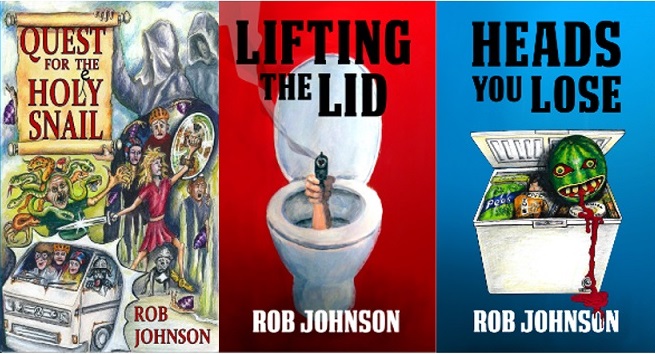
Why do you write the kinds of books you do?
It’s a bit of a cliché, I suppose, but I write the books I like to read myself. First and foremost, I want to be entertained. I want a fast-moving page turner, and preferably with a good bit of humour thrown in. I have to confess that I’m not a great reader of whichever literary masterpieces have just scooped the Man Booker and/or Pulitzer prizes, and I also tend to shy away from anything that claims it will “change my life forever”. Oh really? In what way exactly? And perhaps I’m perfectly happy with my life as it is, thank you very much, so back off and leave me in peace, Big Publisher Marketing Department.
A Kilo of String is very different to my previous three books, all of which are novels, and it was a book that I felt almost compelled to write because I wanted to share what it’s like to live in a foreign country but as entertainingly as possible. I’d already produced a podcast series of the same name, so I thought how easy it would be to write a book that was loosely based on the podcast episodes. How wrong I was. But judging by the majority of the feedback I’ve received since the book was published, all the hard work, gnashing of teeth, sleepless nights and my wife threatening to divorce me were well worth it (except for the divorce bit, of course).
What is the inspiration behind your latest novel?
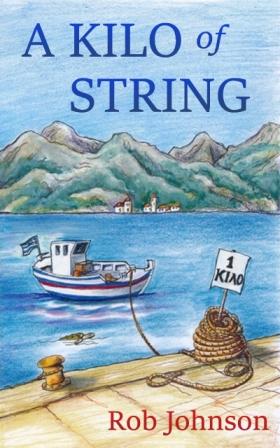 Although A Kilo of String isn’t a novel , it does include a certain amount of fictional embellishment. (Penny says that most of this is to my advantage and to her detriment, but I tell her she can always write her own version of events if she felt so inclined.) From the moment we moved to Greece back in 2004, our most overused word was “bizarre”. Inevitably when you move to a foreign country, there’s going to be a certain amount of culture shock, but some of the things we encountered were just so weird (to us, anyway) that I started keeping notes of every bizarre experience.
Although A Kilo of String isn’t a novel , it does include a certain amount of fictional embellishment. (Penny says that most of this is to my advantage and to her detriment, but I tell her she can always write her own version of events if she felt so inclined.) From the moment we moved to Greece back in 2004, our most overused word was “bizarre”. Inevitably when you move to a foreign country, there’s going to be a certain amount of culture shock, but some of the things we encountered were just so weird (to us, anyway) that I started keeping notes of every bizarre experience.
I wasn’t really writing at the time, so I’d no idea what I was going to do with these notes, but eventually they found their way into a podcast series I produced and then into a book. The title of both, incidentally, comes from one of our earliest bizarre experiences when we discovered that you don’t buy string or rope by the metre In Greece but by the kilo.
Most of these experiences we found highly amusing, but there have been other occasions when the Greek way of doing things can be utterly infuriating. And in case I’m beginning to sound like the stereotypical British expat who’s constantly moaning on about the perceived shortcomings of whatever country it is that they’ve chosen to settle in, there are plenty of examples in the book about how we Brits aren’t exactly innocent when it comes to weirdness.
What inspired you to be a writer?
As I mentioned earlier, I’ve always loved writing and making up stories for as long as I can remember, although it was my English teacher at secondary school who first put it into my head that I might want to think about taking my writing seriously. In those days, we had to write a composition about once a week which were basically short stories, apart from the occasional yawn-inducing “What I Did On My Holiday” kind of thing.
Geoffrey Chant – for such was the teacher’s name – seemed to like most of the stories I wrote and usually gave me a very high mark. (It has to be said, though, that he was less than enthusiastic over my story of an explorer who wound up in a massive cauldron of boiling water and about to be eaten by cannibals, which I ended with the words, “Somehow he escaped.”)
I was about fourteen or fifteen at the time, and I remember distinctly the time when he handed me back one of my compositions that he particularly liked and said, “Have you ever considered becoming a writer when you leave school?” And so the seed was sown.

Is it important to conduct research while writing fiction? Must fiction be historically and factually accurate?
I can’t remember who it was now, but a well known author once said that fiction had to be even more credible than non-fiction or the reader would lose faith in the story. So, yes, I think that novels must be historically and factually accurate, whatever the genre, to keep the reader involved.
There’s been a short, weekly show called Points of View that’s been running on the BBC since the 1960s where viewers write in to praise or criticise TV programmes which have aired recently, and it’s amazing how the tiniest errors can be picked up. For instance, I can remember one viewer complaining about a historical drama that the buttons on the soldiers’ uniforms weren’t introduced until two years after the story took place. The point is that, as an author, you can never know what your reader might be an expert in, whether it’s military buttons through the ages or something else that we might think is incredibly trivial like railway timetables.
For instance, when I was writing Lifting the Lid, I had to make sure that three separate groups of characters had to travel from different parts of the UK to arrive at a specific location in Bristol at exactly the same time. One of these groups was travelling by train, and when I checked train timetables on the Internet, I realised that they’d arrive half an hour too early, so I wrote in a thirty minute delay due to “essential engineering works on the track”. Not unusual in the UK as most of your British readers will know to their cost.
Ah, yes, the Internet. What a wonderful boon to writers that’s been. Whatever research you need to do, it’s pretty much all there at your fingertips, so there’s no real excuse any more for historical or factual inaccuracies.
Do you recognize yourself in any of your characters?
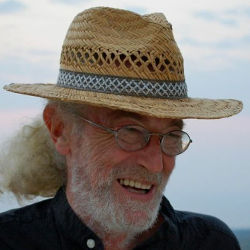 Unfortunately, yes. I don’t like to admit this, but I do share quite a few personality traits with the main character Trevor Hawkins in my comedy thrillers, Lifting the Lid and Heads You Lose. Like me, he is incredibly indecisive, a terrible procrastinator and has a very low pain threshold. On the more positive side, we’re both dog lovers (he has one, and I have six), and we both own elderly VW Transporter camper vans, although mine is currently off the road.
Unfortunately, yes. I don’t like to admit this, but I do share quite a few personality traits with the main character Trevor Hawkins in my comedy thrillers, Lifting the Lid and Heads You Lose. Like me, he is incredibly indecisive, a terrible procrastinator and has a very low pain threshold. On the more positive side, we’re both dog lovers (he has one, and I have six), and we both own elderly VW Transporter camper vans, although mine is currently off the road.
What are you working on now?
A few weeks ago, I was approached by a publisher who wanted to produce A Kilo of String as an audiobook, but eventually I decided to record it myself, and I’ll be starting that very soon. I already have the equipment I used for recording the podcast series and a makeshift studio, and if all goes well with this one, I’m planning to produce audio versions of my other books as well.
Right now, though, I’m just completing the latest edit of my new novel, provisionally titled Cremains, which is a crime caper about a small-time crook, a psychopathic gangster, a drug-dealing undertaker and an elderly woman who is tragically crushed to death under a falling upright piano.
I’m also expecting to start work on a screenplay in the near future as I’ve been approached by someone to adapt the book he wrote about his experience of being illegally detained in an immigration detention centre in the Philippines for eighteen months. It’s a fascinating story that has some strong parallels with Midnight Express and is highly relevant to current migration issues throughout many parts of the world.
Thanks for stopping by, Rob!
Connect with Rob on Facebook, Twitter, his website, Amazon Author Page, or Goodreads. You can also listen to his podcasts or buy his books on Amazon: Lifting the Lid, Heads You Lose, Quest for the Holey Snail, A Kilo of String.
Rob is also a member of Travel By Book, a Facebook group dedicated to travel fiction and non-fiction. If you love to read or write books strong in setting, consider joining us!
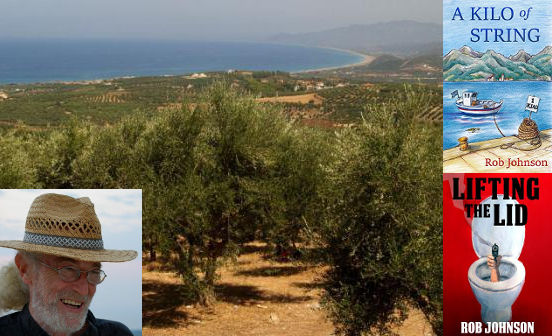
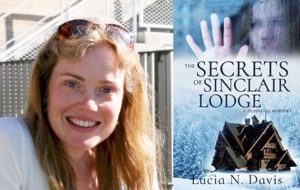
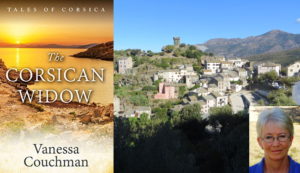

Pingback: Spotlight On… – Jennifer S. Alderson
Awesome interview. Thanks for interviewing one of my favorite authors, Jennifer!
Many thanks for the opportunity to talk about my work, Jennifer. I really do appreciate it.
Many thanks also to Suzi and Pamela for your kind remarks.
No problem, Rob! I’ve got Lifting the Lid on my kindle and hope to start it soon. I could use a funny read!
The only comment to leave here: if you have enjoyed this interview, read the books, you are unlikely to be disappointed, especially A Kilo of String.
Great to know, Suzi and Pamela!
Excellent interview. I am a huge fan of Rob Johnson’s writing.